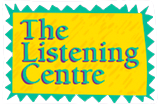Listening Therapy For Our Son
We are the parents of a great Kid! Without formal training, you would have known that our thirteen year old was bright, verbal, at ease with people, and very humorous (an essential element for anyone involved with the maze of learning disabilities). Our son expressed himself eloquently in words but not in writing. He is dysgraphic. The frustration he experienced in dealing with the school system was extreme.
Since our child was five years old, we have followed the “normal” channels open to the LD child, with the exception of drugs. When we were directed to the centres using listening training programs based on the work of Dr. Tomatis by a close friend, we found little representation in the states. We chose to go to Toronto Listening Centre.
...I will leave it to others better qualified to explain the method more fully. As parents, we were more interested in results. To our surprise, we began to see changes within three days of beginning the listening program, although all clients did not respond this quickly. Our son first developed a sense of direction which freed him from the constant fear of being lost. He kept asking us about childhood incidents that he previously could not recall. He began to tell time and understand it. He began to play more freely, less guarded with other children. He was more affectionate and less “13”. There were fewer flashes of frustration and anger. After seven days, we asked him to read out loud, previously a degrading experience and terrible burden to him. To our surprise, his pronunciation and word attack skills had improved. He began to laugh instead of cry when things were too hard. We sat in the third balcony for a production of Shakespeare and he laughed at the right jokes - all three acts!
During the summer he noticed his attention span for small tasks lengthening. He found himself amazed at the focus he could maintain, even for lists of spelling words. He noticed his body position in space - his coordination was improving. Always an agile and sports minded child, he just got better and better. When school started, he remembered his assignments, brought the right books home, was less disruptive. We got “good” comments from some of his teachers. most importantly, he began to write. We have even seen some attempts at cursive writing (LD children usually revert to printing by 6th grade).
Four months after his last session in Canada, we went to Monterey, Mexico for a listening boost. We were excited about the continued improvement in the listening test. But the most impressive results to us were the lack of frustration and the emergence of joy in our son’s life.
It has been a year since our first intensive session, and our enthusiasm for the work has not diminished. Our son completed his own homework assignments throughout the school year with less tutoring. The fluency of his written word is beginning to match the fluency of his spoken word. The frustration he lived with everyday has disappeared and we lived through the finals. His self-esteem is so improved that he has less need to be right. He has chosen more stable friends, and peer pressure is much less important. Mainly, he is so happy. He is free with hugs and expression of support. He even volunteered to read to the kindergarten at the end of the year. With his new found patience, he is volunteering to work with LD children a few hours a week. He was accepted into a college sponsored Talented and Gifted (TAG) program, and enjoys being thought of as a gifted student.
As wonderful as things are, nothing is perfect. One day before spring break, something went terribly wrong. Our son forgot his books, assignments and instructions. Too late to do anything about it, we said nothing and hoped for the best. Our son was scared something had gone terribly wrong. It hadn’t. It was just a bad day. When he came home the next day, he said he never wanted that to happen gain. He had forgotten how awful every day of his life had been before the listening therapy.
Our son has asked us to take him to The Listening Centre for one week of listening each year for the rest of his life. We pointed out that this was not necessary since he had finished the program. His reply was “I can’t take any chance of losing this.” He also said he would take his children whether they needed it or not.
Learning disabilities affect everyone. Twenty-five percent of the U.S. population is learning disabled to some degree. Our prison populations are over 90% learning disabled. the needs of our family are minimal compared to some I have seen, but we have learned that it is essential to keep an open mind when dealing with this subject. otherwise, the expert’s answers will leave you with a feeling of fear and hopelessness. With so much energy being focused on the needs of an LD child, you cannot afford this. Never give up the belief that there is help available and always remember that you are not alone.
- published in Health 2000
 Skip Navigation
Skip Navigation